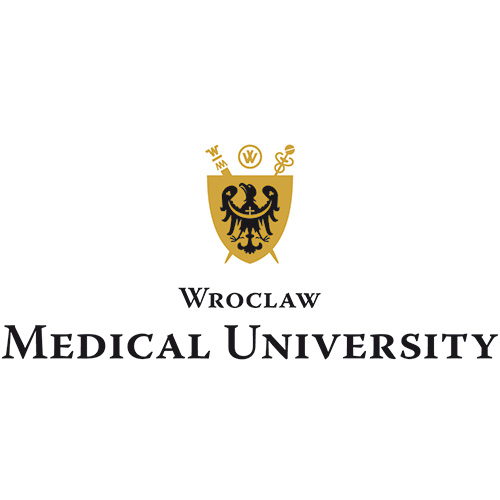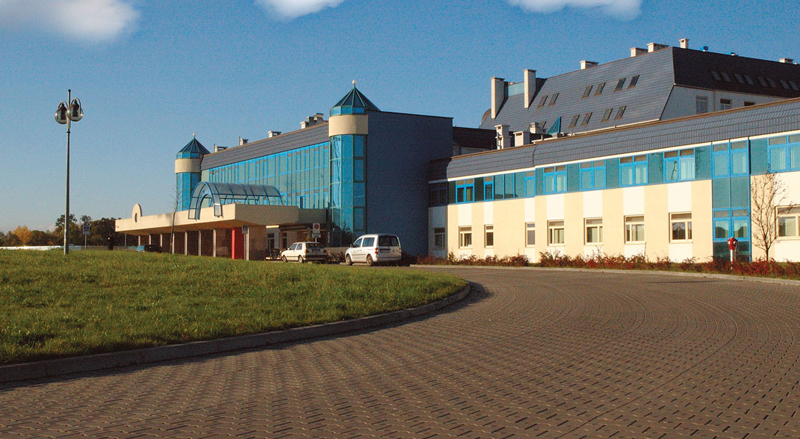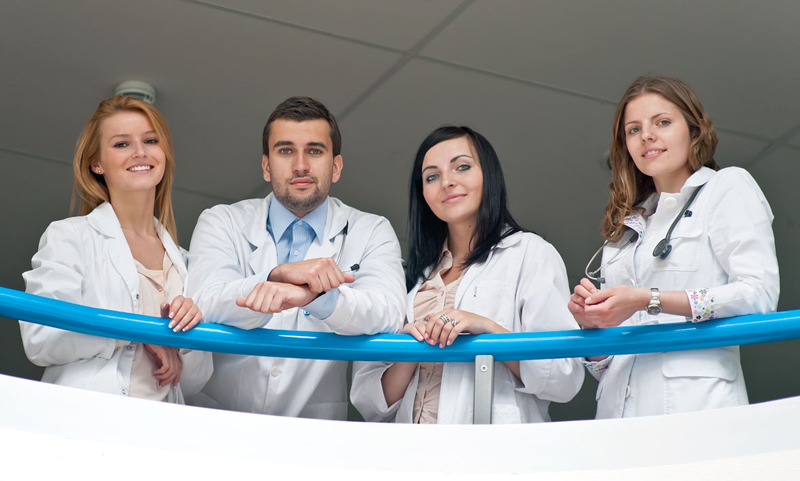Wroclaw Medical University
Uniwersytet Medyczny im. Piastów Śląskich we Wrocławiu
• Established in 1946
• over 1000 academic staff
• over 6300 students
• over 700 foreign students
phone +48 71 784 17 26, +48 71 784 17 53
email admission@umw.edu.pl
www admission.umw.edu.pl/

Wroclaw Medical University is one of the leading medical schools in Poland, with a rich history that reflects the vibrant past of the city of Wroclaw. The university as we know it today began to take shape after 1945, when Wroclaw came under Polish administration following World War II, and the Faculty of Medicine was established as part of the merged University and Technical University of Wroclaw. In 1950, it was transformed into the Medical Academy, and in 2012, it became Wroclaw Medical University, named after the Piast dynasty of Silesia.
Many distinguished scientists have been associated with Wroclaw Medical University throughout its history:
• Ludwik Hirszfeld, one of the most prominent Polish immunologists and bacteriologists, who established the foundations of blood science and became the first Dean of the Faculty of Medicine after the war,
• Alois Alzheimer, a neurologist and psychiatrist, best known for discovering Alzheimer’s disease,
• Nobel prize winners: Robert Koch, awarded for the creation of modern bacteriology, and Paul Enrich, one of the pioneers of chemotherapy,
• Jan Mikulicz-Radecki, often regarded as one of the fathers of modern surgery,
• Wiktor Bross, a surgeon who performed the first open-heart surgery in Poland and the first kidney transplant from a living donor.
These individuals, among others, have contributed to shaping the university as a centre of medical research and education, leaving a lasting legacy in both Polish and global medicine. Over the years, Wroclaw Medical University has continued to be a leader in medical sciences, producing countless professionals who have advanced various fields of medicine.
DIDACTICS We currently educate over 6300 students. In addition to programmes conducted in Polish, we also offer Medicine, Dentistry and, as of 2025, Nursing studies in English.
Since the establishment of the English Division in 2003, many international students have had the opportunity to study medicine in Wroclaw. In the 2024/25 academic year, the English Division has over 700 students enrolled from 59 countries, including Germany, Sweden, Norway, Canada and the United States, as well as Saudi Arabia, India, South Africa, Thailand and many more.
The curriculum of the English Division is identical to that of the Polish Division and is aligned with the common European programme, adhering to European admission standards for medical education. Teaching is carried out by a team of highly qualified specialists in small tutorial groups: 10–12 students for theoretical subjects and 5–6 students for bedside teaching. We are particularly proud of our state-of-the-art Medical Simulation Centre, which allows our students to learn and grow in the best possible conditions. We also offer opportunities to learn practical patient care at the University Clinical Hospital – one of the largest and most advanced clinical facilities in Poland – and at the University Dental Centre.
SCIENCE FIRST Every year, we implement several hundred research projects. We firmly believe that science has no boundaries, which is why we cooperate with hundreds of scholars, both domestic and international, in order to advance medical science. Scientists from our University have been awarded prestigious grants, including those financed by the European Commission under the Horizon 2020/Horizon Europe Programme.
WROCLAW MEDICAL UNIVERSITY IN WORLD RANKINGS
Times Higher Education World University Rankings (the WUR) 2025:
WMU is ranked as the best Polish university within the top 2% to 3% of universities worldwide.
Academic Ranking of World Universities (the ARWU) 2024:
WMU is the only Polish medical university included in this year’s Shanghai Ranking, maintaining its status as the national leader for four consecutive years.
Centre for World University Rankings (the CWUR) 2024:
WMU has achieved the top position among medical universities in Poland and is the highest-ranked university in Wroclaw.
WROCLAW – WELCOME TO THE MEETING PLACE Wroclaw is the fourth largest city in Poland with over a thousand years of tradition. Called “the Venice of the North” thanks to its 12 islands and 130 bridges, the Lower Silesian capital is a meeting place for people of science, business and culture. The local universities attract thousands of students every year, offering not only the highest level of education but also a chance to live in a historical but modern city full of music and art, with vibrant nightlife and extensive job opportunities.
Facts & figures
- Established in 1946
- over 1000 academic staff
- over 6000 students
- over 750 foreign students
Contact
Wroclaw Medical University, Admission Office
Jana Mikulicza-Radeckiego 4A
50-345 Wroclaw, Poland
+48 71 784 17 26, +48 71 784 17 53
admission@umw.edu.pl
https://rekrutacja.umw.edu.pl/





